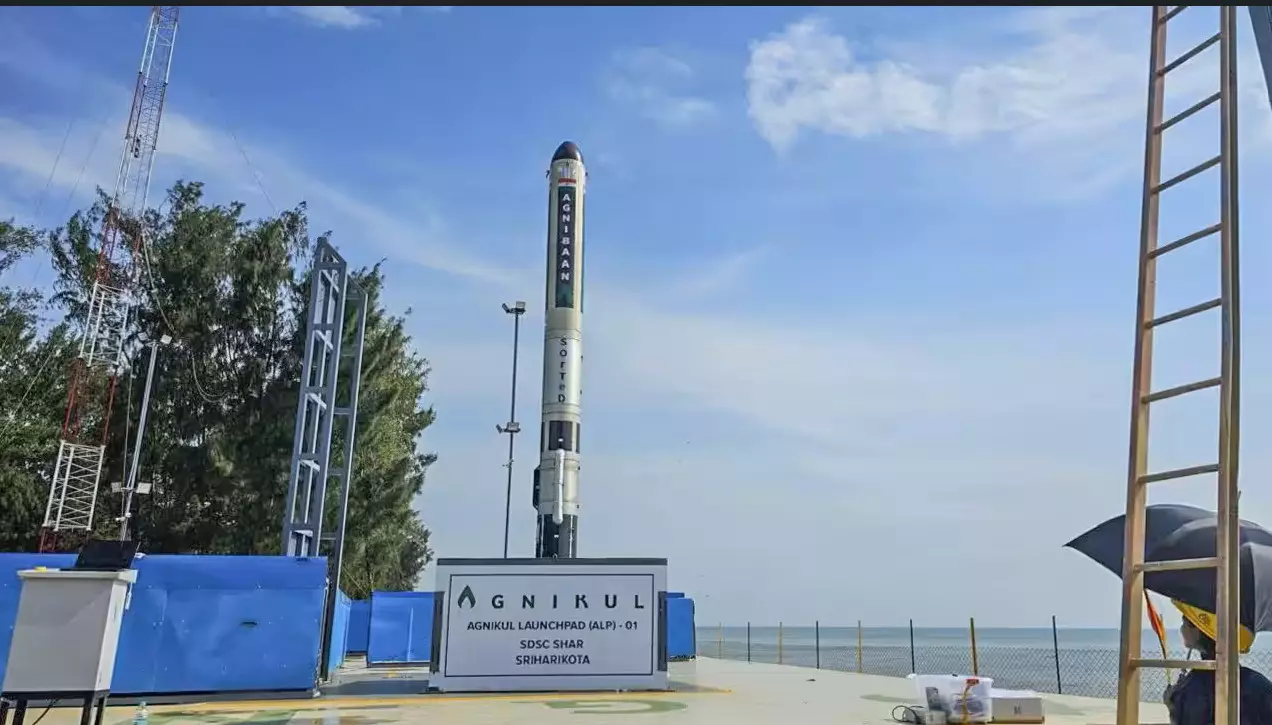Agnikul eyeing commercialisation of 3D-printed engine, make it into a business: CEO
Speaking on the sidelines of the third Annual India Space Congress (ISC) 2024, in the national Capital, Srinath shared details about the success of the rocket Agnibaan SOrTeD (SubOrbital Technological Demonstrator) and the company’s way forward
image for illustrative purpose

New Delhi: After scripting history with the world’s first rocket with a fully 3D-printed engine, Chennai-based space technology startup Agnikul Cosmos is now looking to commercialise the technology and generate business, said co-founder and CEO Srinath Ravichandran on Wednesday.
Speaking on the sidelines of the third Annual India Space Congress (ISC) 2024, in the national Capital, Srinath shared details about the success of the rocket Agnibaan SOrTeD (SubOrbital Technological Demonstrator) and the company’s way forward.
It was also India's first semi-cryogenic engine-powered rocket launch that was completely designed and manufactured indigenously as well as launched from India’s first privately-developed launchpad called ‘Dhanush’ established by Agnikul at Sriharikota in Andhra Pradesh.
Srinath told: “The journey has been a lot of learning, a lot of learning to be patient. The team has done a really good job. I think the future is looking very exciting for us. There are barely any launches available today for satellites of this class,” he said, adding that “the opportunity to build rockets like this and address those solutions, has been a global opportunity.”
“We are scaling up for commercialisation now, and keeping our eye out on making a business out of the technology,” he noted. Calling India's budding space startups, “a passion-driven industry”, Srinath said that a “lot of people were coming for their love for space and technology rather than for just being an entrepreneur and to make money.”
While lauding ISRO for positioning “India as a global space player”, Srinath said that “opening up the space sector for private players can help the country tap into a much larger market”. “I think it's great for the country, great for all businesses and great for everyone,” he said.

